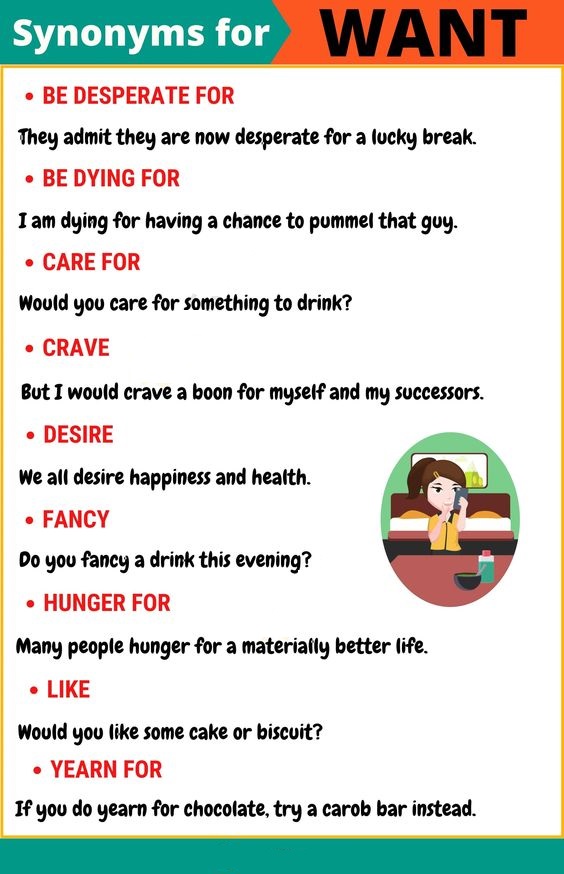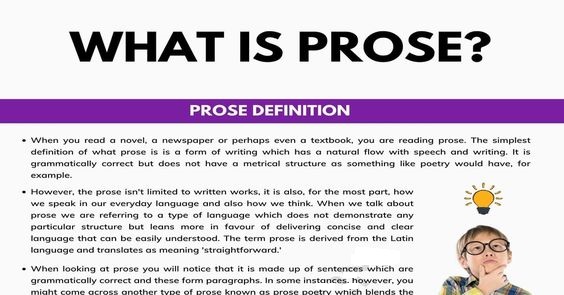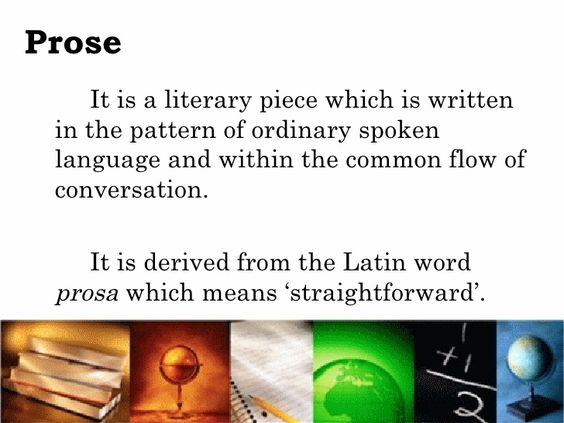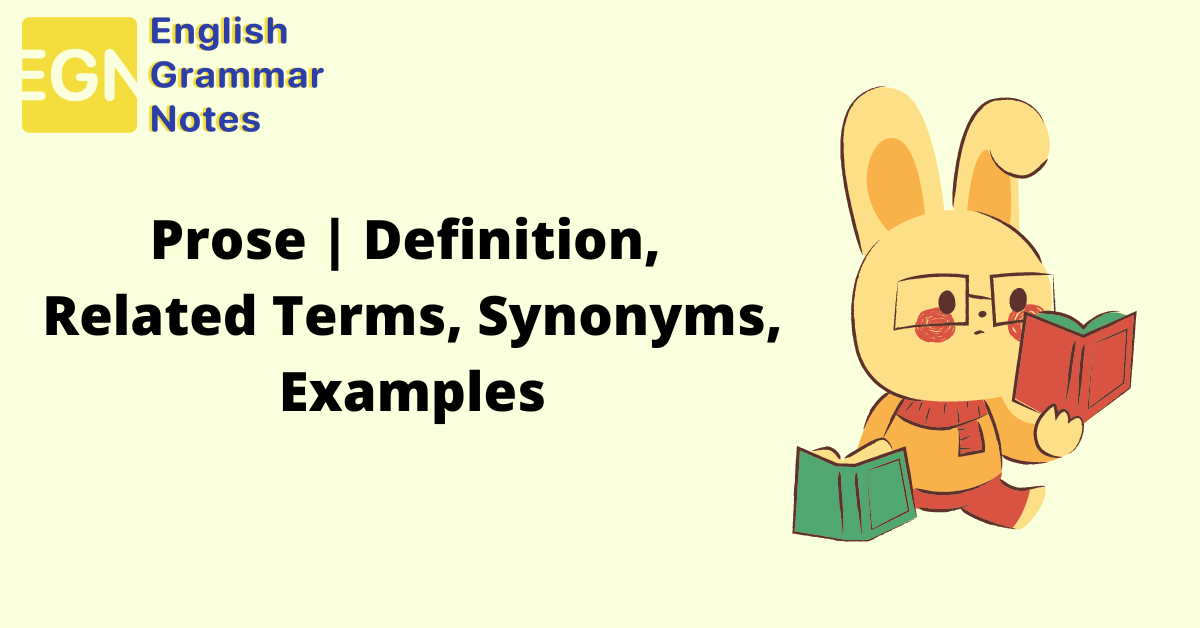The prose is the most common and popular form of writing used today. Prose has its roots in the Latin word prose, which means “straightforward.” In this article, you will be introduced to all the essential information about prose, including its definition, types, significance, examples, synonyms, etc.
- Prose Definition
- Prose Styles Include
- Functions of Prose
- Difference Between Prose and Poetry
- Synonyms for Prose
- FAQs on Prose
Prose Definition
Prose refers to a specific kind of writing that is structured in a grammatical way. Words and phrases are organized into sentences and paragraphs. In prose writing, the language flows in a natural pattern and most of the diction is that of everyday speech. Prose pieces are generally straightforward and use a conversational tone.
Here is the Guide to English Grammar Notes & Study Material for grammar ideas that help students of all levels, from beginners to experts, perform well on exams.
Prose Styles Include
Writers make use of different prose styles as per their purpose. The various forms include:
- This type of prose focuses on real-life events and provides factual information or an account of something.
- This type of prose relies on a legend or fable. It is generally meant to be recited and refers to something that has been passed down through tradition.
- Fiction is the most popular form of prose style. used in novels and short stories. It consists of elements such as plot, setting, characters, dialogue, etc.
- Poetic Prose refers to poetry in the form of prose. It creates a literary hybrid and has a rhythm and/or rhyme pattern.
Functions of Prose
The prose is used as a literary device for various reasons. These include:
- It conveys an idea, point, etc. in a straightforward manner.
- Using different prose styles helps the writer to establish his or her voice.
- Since prose is written in a conversational manner, readers easily connect with what you write.
Also read,
Difference Between Prose and Poetry
Prose and poetry are two distinct literary devices.
Prose, as mentioned earlier, imitates everyday speech and communication. Words and phrases are organized into sentences and paragraphs that run along several pages.
Poetry, on the other hand, usually relies on rhythm and rhyme. Poetry uses elevated, figurative language rather than everyday language. Poems appear in the form of lines.
Synonyms for Prose
Prose has no exact synonyms that can be used interchangeably. Some of the words that have similar meanings are unlyrical, antipoetic, writing, prosaic, unpoetic, factual, literal, and factual.
FAQs on Prose
Q1. What is prose?
Ans: Prose refers to a specific kind of writing that is structured in a grammatical way. Words and phrases are organized into sentences and paragraphs.
Q2. What are the different types of prose?
Ans: The different types of prose forms include: non-fiction, fiction, heroic prose, and poetic prose.
Q3. What are the main functions of prose?
Ans: The use of prose style helps you convey a point in a straightforward manner. The use of prose also helps to establish your own distinct voice.
Conclusion
The prose is one of the most preferred writing styles. Writing in prose helps you to convey your point in a straightforward manner. Prose works are easier to read, so everyone generally prefers to read prose. All of us love stories. We easily follow a story when it’s in prose. So whenever you think of writing something, maybe you can go for the prose style.



